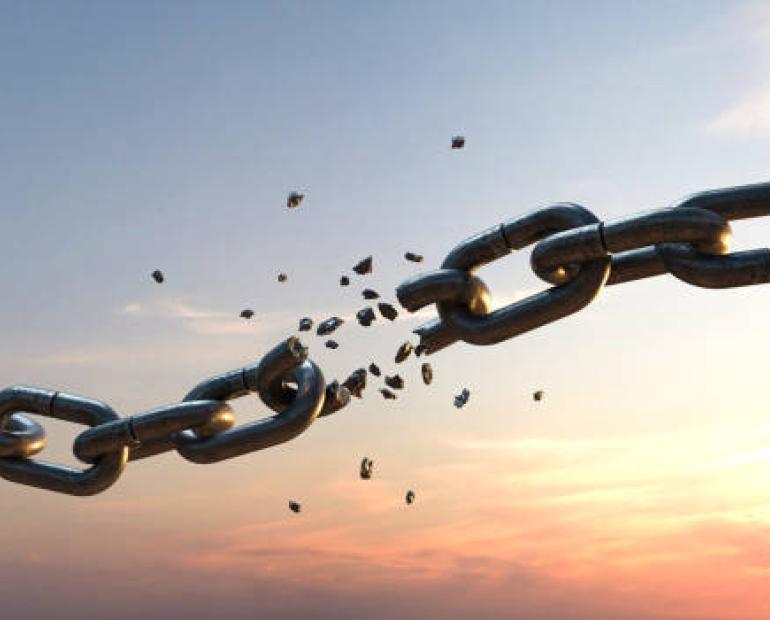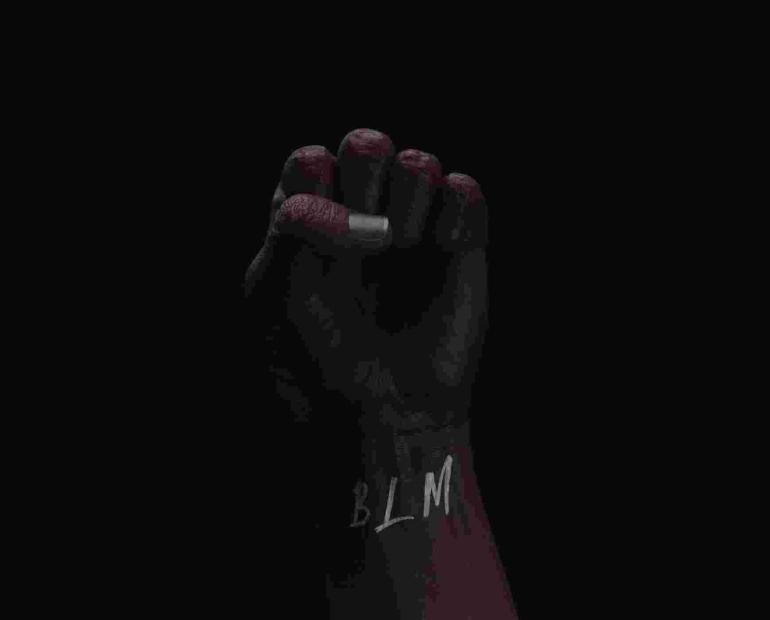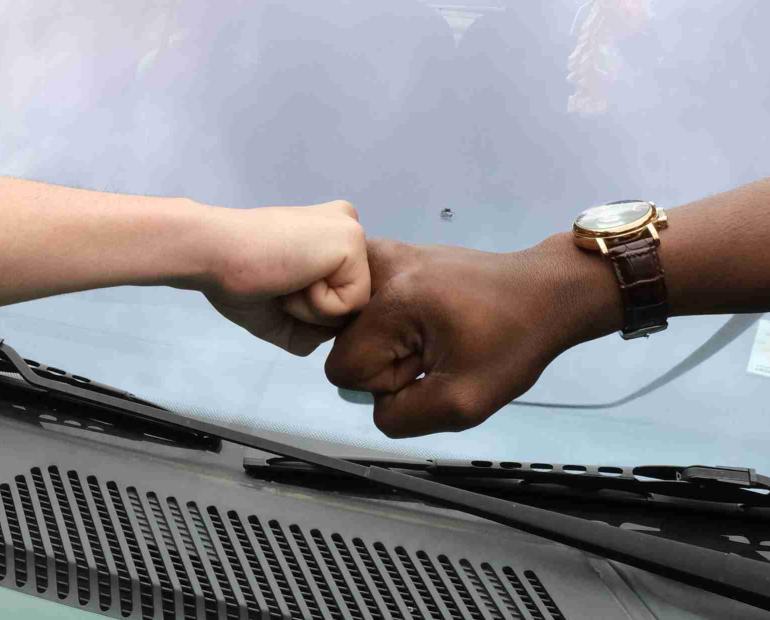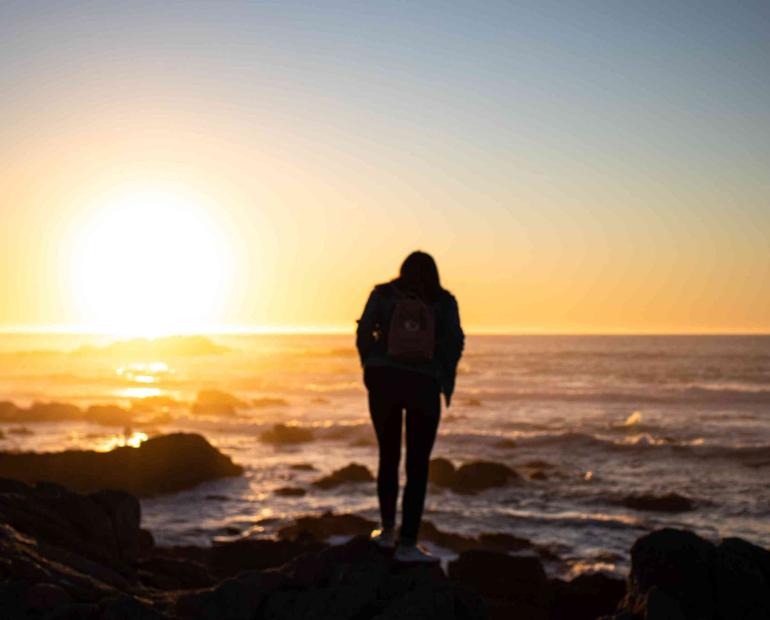Every child deserves to live in a world free of discrimination. Unfortunately, the history of the world has seen too many crimes of hate and racism.
As part of UNICEF's Youth Mediathon, a group of young content creators from Israel, Bulgaria, India, Pakistan and the Democratic Republic of Congo were challenged reimagine a future without discrimination.
Check out the multimedia project that Fitnat Waked, Isaac Mududa, Maria Alexandrova, Fatima Zulfiqar and Muskaan Khanduri developed under the mentorship of Ivaylo Spasov and Khanyi Mpumlwana.
Let the tree grow

Reimagining a world without discrimination for every child
By Maria Alexandrova
In an increasingly polarized world, discrimination has become ever so prevalent. Some would argue it hadn’t been so bad before the rise of social media, however, I am inclined to believe that it has just brought to the surface what was already there – racism, homophobia, transphobia, ableism and so many others. The young people of today are the first generation to have grown up with these technological advancements, allowing us to offer adequate solutions on how to eradicate discrimination. One such solution is the "Tree of Acceptance". It represents the idea that we’re all different leaves of the same tree and only by understanding and celebrating those differences can we create a better world for future generations. This may all sound simple and idealistic, but all significant moments started with the desire to achieve something greater and better for everyone.
The Tree of Acceptance represents the idea that we’re all different leaves of the same tree and only by understanding and celebrating those differences can we create a better world for future generations.
But what exactly is discrimination and why is it important for us to fight against it? In my experience as a disabled person, this type of behaviour often stems from people’s fear of the unknown and lack of empathy. If everyone realized that each of us brings an important, unique and colourful part of the tree of the world, we would live in a much more accepting environment. Unfortunately, society still has a long way to go regarding that. The increasing number of hate crimes, racist remarks, and instances of ableist behaviour in my country of Bulgaria shows that we must act quickly to protect the most vulnerable communities.
As a disabled person, I have dealt with my fair share of discriminatory behaviour. The most prevalent case of it is the assumption that I have some sort of mental deficiency, along with my physical restrictions. To that point, there is this misconception of me not making my own decisions. Almost all the time, people would ask my mother (who is also my primary caregiver) questions regarding my choices, even though I am right beside her. It almost makes me feel insignificant and eradicates the little independence I do have.
In addition to providing my own input on the topic of discrimination, I had the honour of working alongside and interviewing four incredible young activists from different parts of the world about it - within UNICEF’s first global mediathon. I wanted to see how they viewed this global problem and what it looks like in their home countries.
- Fitnat from Israel mentioned that as a female, she has seen and experienced a lot of discrimination based on gender in the Arab community. Eventually, that type of behaviour, which would often escalate to violence, led to a patriarchal society. In addition to that, she added: "Discrimination through my eyes is when children do not get to enjoy their basic rights in life such as education, shelter and safety due to their race, colour or gender, or even just because they are children. Here in Israel many poor and mainly Bedouin kids have been prevented the right to education because they can’t afford computers for distance learning."
- Isaac from the Democratic Republic of the Congo shares a similar outlook. He and his family sought refuge in Kenya. From this unique perspective, Isaac can see that his peers are unable to receive proper education, due to a lack of legal papers. What’s more, his parents had a hard time securing employment just because they were from a different country. A turning point for him was when a photography educator came to his school and offered to teach the craft to refugee students for free.
- For Muskaan from India, discrimination is "when any human being is deprived of basic human rights on the basis of something which is unjustified." In her opinion, the biggest source of it in her home country is the caste system. "The people of the upper caste are very much looked up to and given access to all amenities. However, on the other hand, the people of lower caste are not given such respect in certain areas even today. Sometimes, they don’t even get the same rights."
- Fatima from Pakistan has a more global point on the issue: "Discrimination to me means unequal or different treatment of others based upon one’s narrow perception of the world. [It] is the inability to perceive our differences as unique human qualities, while completely ignoring the fact that the subject of discrimination is as human as you… I’ve always felt that lack of communication is one of the major reasons for discrimination, whether it’s in our home, communities or even globally."
Our differences are what makes us unique and instead of being something repulsive and frightening, they should be celebrated and approached with a desire to better understand those around you.

These various inputs from my peers come together in one main idea. Our differences are what makes us unique and instead of being something repulsive and frightening, they should be celebrated and approached with a desire to better understand those around you. We even saw the positives of implementing that idea within our group.
In the case of Muskaan and Fatima, they come from countries that don’t get along and have preconceived notions of what the other nation is like. However, by being inherently open-minded and through working together, they realized how much they had in common. This encompasses what the Tree of Acceptance is all about (so they drew it together!).
Building a world without discrimination and helping it grow begins with each of us. Re-evaluating our own behaviour as parents, teachers and role models and having those tough conversations with family and friends helps so much on a community level. Even the smallest steps lead to major changes.
Here are some ways through which my teammates and I believe we can let the tree grow:
“Let the tree grow by bringing light onto those whose rights are being stolen, and make their voices heard and make them seen by all kinds of people, the government, the neighbourhood, the media... The world.” – Fitnat
“Let the tree grow by leaders drafting legislation that will allow refugees to secure papers that will enable them to be employed. Let the tree grow by having everyone irrespective of age, sex and gender realize that it’s only by tolerating each other that we will bridge the gap of unity. Let the tree grow by our leaders understanding the importance of education to the global child and making that available. Let the tree grow by organizations supporting selfless grassroots change-makers like my photography teacher so that more refugee youth can get a chance to tell their stories and become professionals and earn a living. Let the tree grow by all stakeholders assuring the global children that they can live anywhere and co-exist peacefully.” – Isaac
“Let the tree grow by standing up for those who are not able to do it for themselves. Be their anchor and lead them to a brighter tomorrow. Let the tree grow by having conversations, even if they make you uncomfortable, to know more about what is happening around you. Let the tree grow by challenging the colour-blind theory! Don't be blind towards our uniqueness but see it more clearly and understand it better. Embrace it. And lastly, let the tree grow by accepting every human being as they are.” – Muskaan
“Let the tree grow by being more accepting of others and initiating positive communication starting from yourself first, be the change you want to see in your future because we are the future! Let the tree grow, by raising awareness in your homes and communities against discrimination!” – Fatima
“Let the tree grow by being open to learning about other people and their differences.” - Maria
It is up to us, the young people of today, to create a better world for everyone. Join us, remember the Tree of Acceptance and find ways for it to grow. Unity is key to building a world without discrimination for every child!
A poem of acceptance
Tree of Acceptance
A poem by Fitnat Waked
Do you see The Tree?
Do you feel the cold blessing breeze under its shade?
Do you lay your back upon its bark... In peace?
No... Not yet…
For it still has not grown tall
Still a seed in the wet soil
Still fighting to reach the rays of a morning sun
It struggles under the feet of soldiers
and blood falling from open wounds
Yet, every day,
It spreads its roots
Despite the shadows of hate
And the checkpoints of discrimination
Despite animosity against the different
Yes, you may not see its roots nor its sprout today
But the ground is shouting with joy
For it feels itself dancing
Erupting!
With change
With hope
The ground hears the prayers of children
They whisper:
“Let The Tree grow”
The ground drinks the blissful tears of laughter and sweat of boys and girls
who play under the watchful eyes
Of those who dislike
Of those who fear
Letting The Tree grow
The ground delights by the warm tone of a girl
Singing a song amid the cries of war
Angelically “let The Tree grow”
It will grow!
You may want to use its bark for fire
You may wish to tear down its leaves
But it will grow!
As long as children call out 1,2,3!
During hide and seek
It will grow!
So we must all become water
And let all children plant their seeds
It will grow
And there will come a day when all children swing and climb
In a forest
Of tall, strong, colourful trees.
ABOUT THE TEAM
Maria Alexandrova is an advocate for the children and youth with disabilities. Refusing to be defined or constrained by her cerebral palsy, through sheer tenacity, she has become Bulgaria’s first adolescent living with cerebral palsy to take the prestigious Cambridge Assessment in English exam. Now she started her bachelors in Journalism and Mass Communication at the American University in Bulgaria, and is looking forward to changing the public attitudes in the future as a professional.
"Isn’t it high time to embrace our differences as richness, not as a deficit? We have a strong voice and a strong will. So, don’t “give” us a voice, we already have such, but just make the effort to listen to that voice – even if we are telling you inconvenient truths."
Muskaan Khanduri is a 16-year-old artist from India. She has painted since as long as she can recall, and also has a degree in dance. She has an art account on Instagram, where she shares her work. She loves socializing and considers content creation as a very important part of her life.
"I'm a big believer of 'You have within you the strength, the patience, and the passion to reach for the stars and change the world,' regardless of people telling kids our age that we are 'just kids'. I hope to make a change, and I hope to do it with the help of everyone who is a part of this!"
Isaac Mududa and his family escaped civil war in the Democratic Republic of Congo (DRC) while he was very young. He enrolled in a local primary school in Kenya, where a local photography educator from Kenya volunteered to teach photography. And from then on he developed an interest in photography, because he wanted to tell his story as a refugee through the lens of the camera, as well as become a professional photographer and take his craft back in DRC.
"I have witnessed a country torn apart by war and it makes me sad when I see the ones that suffer the most are women and children just my age. With the help of our photo educator Justus and my colleagues we captured photos of kids in their day to day lives and did a photography exhibition where we showed the rest of the world that people can co-exist irrespective of their colour, race, sex and religion."
Fitnat Waked is a 17-year-old Muslim Arab Palestinian Israeli girl studying at a Christian international Scottish school, which allowed her to meet and learn about people from over 40 countries and practicing over 15 faiths, despite living in a small mixed Arab-Jewish city of Jaffa. She has been part of local model UNs, a part of a model international criminal court in Poland and joined a peace building program focused on storytelling in the US called 'Jerusalem peace builders'.
"I am a very passionate personality, some would say naive, some would say unrealistic. However, I believe that each and every one of us has a role in changing the world, even if it is impacting the life of one person around us. For the longest time I did not know how I was going to do that, I almost gave up to the voices of those around me. However, this year I have been able to make my voice heard through writing and became part of a larger global community."
Fatima Zulfiqar graduated her high school from Malaysia and is currently finishing her studies in International relations from Pakistan, in one of the biggest universities for women in Asia. She's fluent in English, Urdu, Malaysian language, along with Indonesian, Hindi and basic French as well. She's also a self taught artist and recently found her love for digital illustrations and free hand graphic designing.
"An issue that is very close to my heart is lack of representation of young people in politics and society in general. I truly believe that If we start to include our youngsters in politics or provide them with healthy outlets to share their opinions, many of our problems would be solved. These are our future leaders and I believe that we should encourage their engagement in politics and our social problems, that their opinions and suggestions should be heard."
Learn more
Do you reimagine a world without discrimination? Check out these resources to learn more:
Five actions you can take against racism and discrimination





